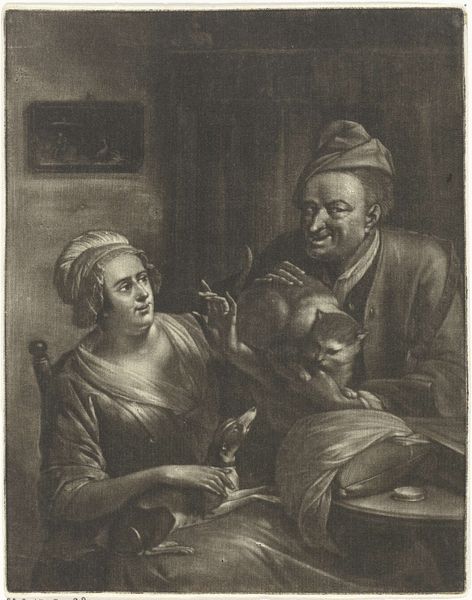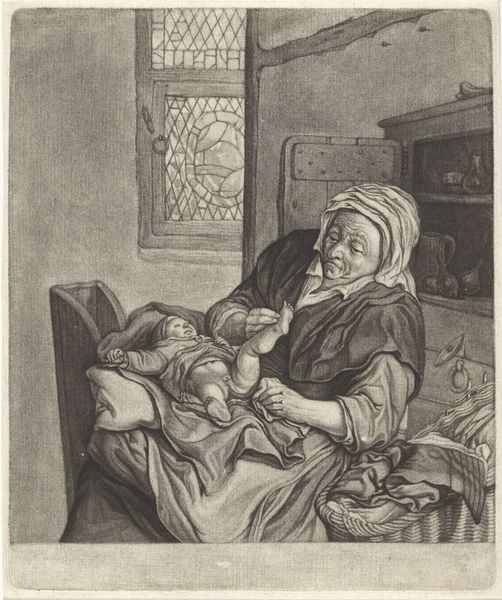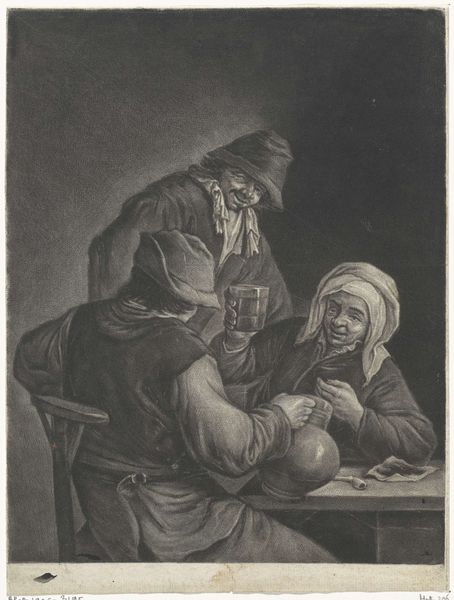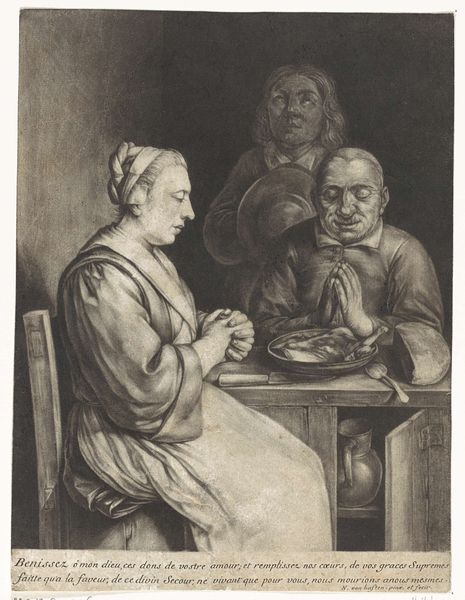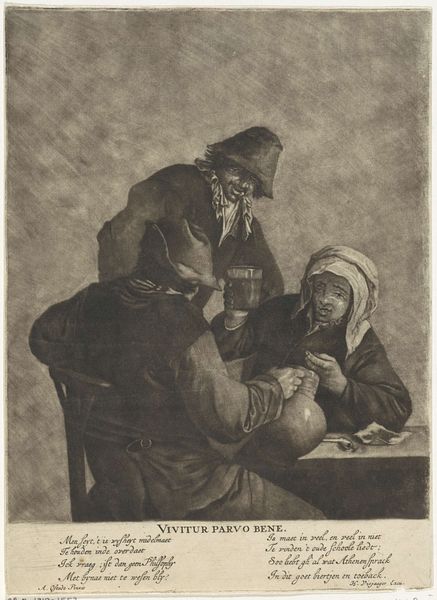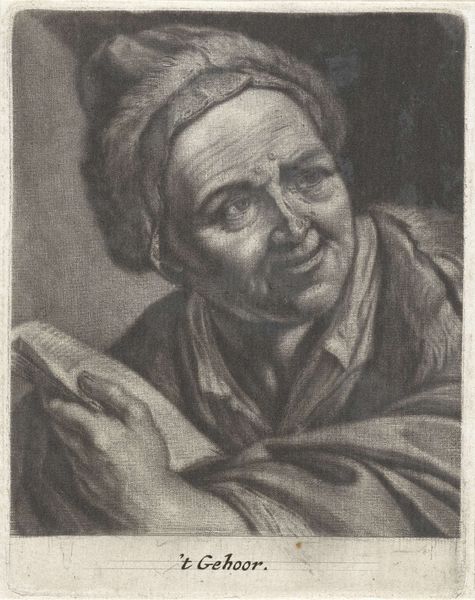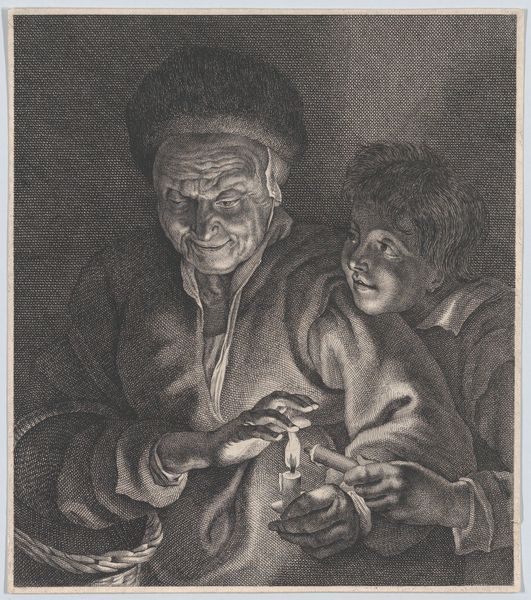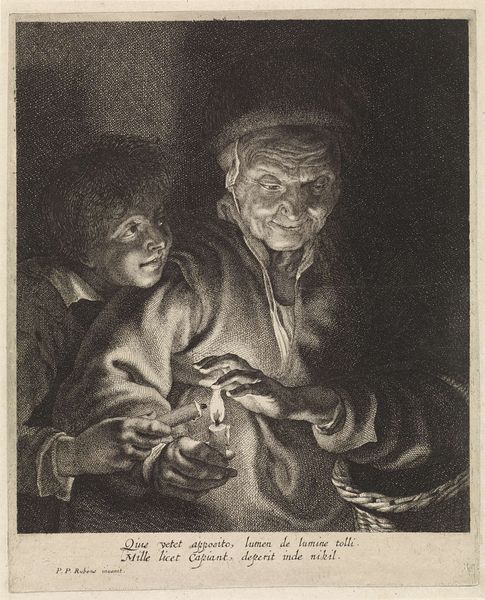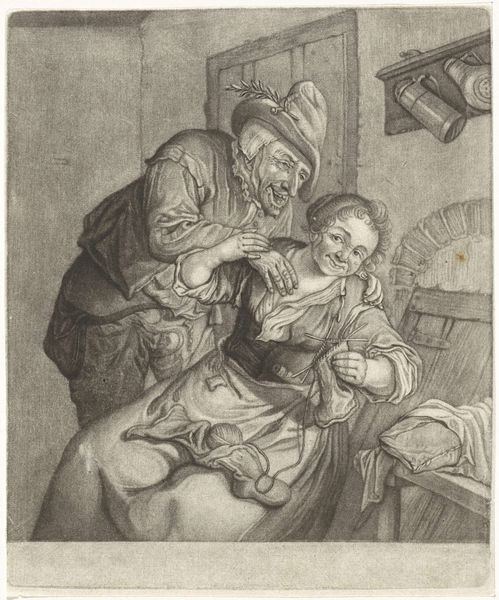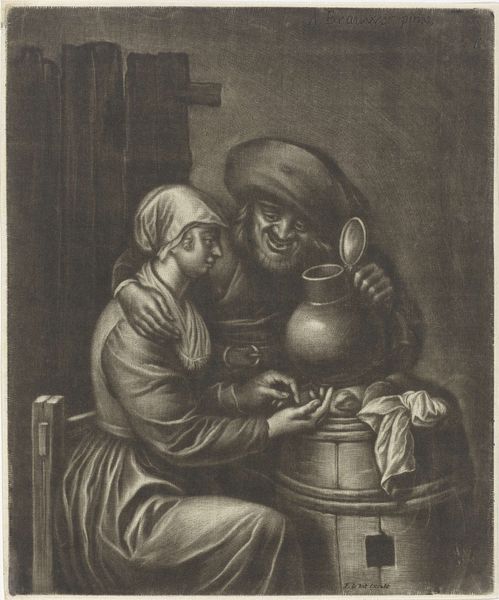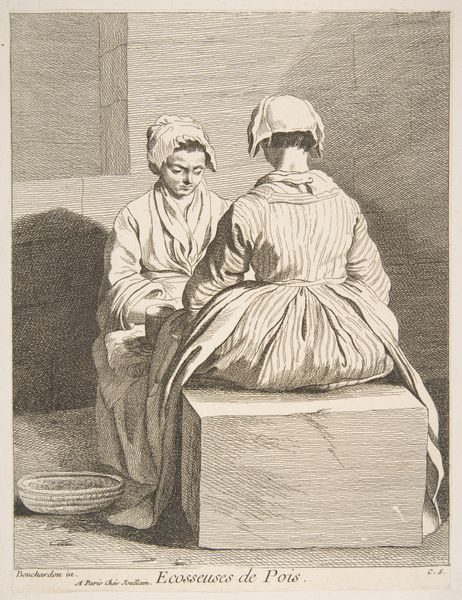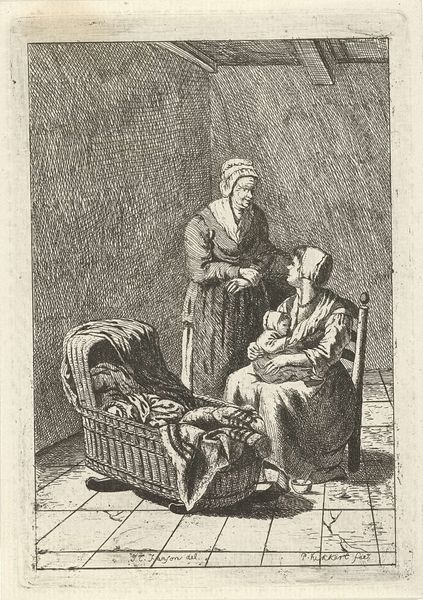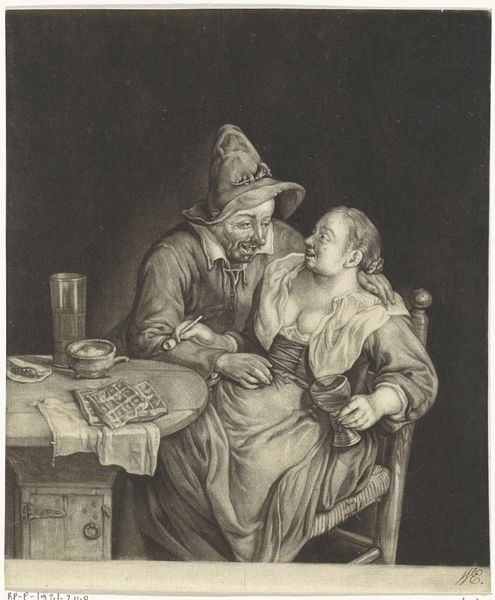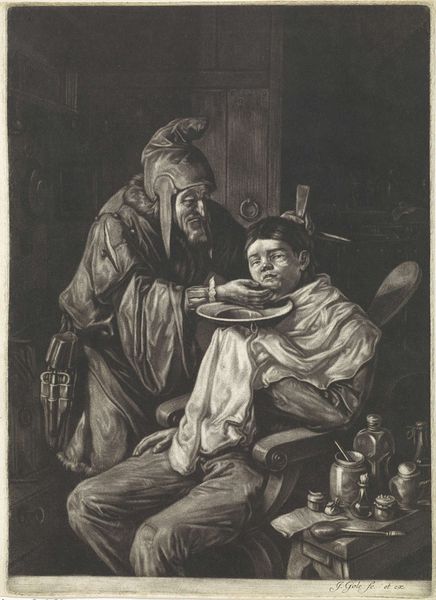
drawing, print, etching
#
portrait
#
drawing
#
16_19th-century
#
baroque
#
dutch-golden-age
# print
#
etching
#
dog
#
landscape
#
charcoal drawing
#
figuration
#
portrait drawing
#
genre-painting
#
fine art portrait
Dimensions: height 200 mm, width 157 mm
Copyright: Rijks Museum: Open Domain
Aert Schouman made this print, "Two Figures with a Dog and a Cat," sometime in the 18th century. It presents an intimate domestic scene, but it’s worth asking what such images meant to viewers at the time. This was the Dutch Golden Age, a period defined by its mercantile wealth and the growth of a powerful middle class. As the market for art expanded, new genres emerged such as landscapes, still lifes, and scenes of everyday life, that spoke to the values and aspirations of this new class. Prints like these, distributed widely, played a crucial role in shaping social norms. They reflected a desire for order, domesticity, and harmony but also idealized gender roles and class relations. As historians, we need to consider such images as both reflections of and contributors to the social structures of their time. To do this, we can examine period literature, social histories, and institutional records. Only then can we understand art’s complex role in society.
Comments
No comments
Be the first to comment and join the conversation on the ultimate creative platform.
